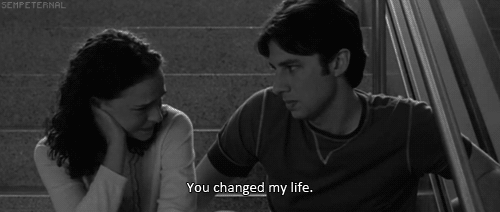 The Neverending Story is a fascinating, sweeping fantasy tale written by German author Michael Ende, a clearly intelligent man who dipped his talents into many realms in his life. This is the first story I have read by him, and I am certain it will be the last. Why? Not because it is a deterrent. But because it is spectacular! Rich upon rich detail, describing the most colorful, vivid and grand atmospheres, structures and landscapes. I wonder how a writer like Ende can make every single sentence flow like honey, resonating sweetly in my mind as it becomes one with my imagination. It is a truly remarkable talent that will be obvious to appreciative readers. I blew by the pages in about half a day. The pacing is very well done and never drags for an instant! That is… until what would've been the conclusion in any other book.
The Neverending Story is a fascinating, sweeping fantasy tale written by German author Michael Ende, a clearly intelligent man who dipped his talents into many realms in his life. This is the first story I have read by him, and I am certain it will be the last. Why? Not because it is a deterrent. But because it is spectacular! Rich upon rich detail, describing the most colorful, vivid and grand atmospheres, structures and landscapes. I wonder how a writer like Ende can make every single sentence flow like honey, resonating sweetly in my mind as it becomes one with my imagination. It is a truly remarkable talent that will be obvious to appreciative readers. I blew by the pages in about half a day. The pacing is very well done and never drags for an instant! That is… until what would've been the conclusion in any other book.If you've seen the film adaptation of the novel, you might wind up just as perplexed and slightly jarred by the additional superfluous mini-story after the climax as I certainly was. Dozens of new characters inexplicably thrown in with lots of confusing names, lots of confusing places in every chapter and for what…? For some elusive symbolic or metaphorical purpose? I understand the book has a political message behind it, but my comprehension only delves so far. I found myself lost in the details, as if Ende was piling them on simply because he could, but… the sparkly detail, vivid imagery and magic were suddenly gone. As if the dreaded Nothing had consumed them and regurgitated them into 50 or more so pages that didn't need to be written. I can't understand why, but luckily I have no problem putting my own end marker after the otherwise natural conclusion is over. Judging from that basis, it is still a wonderful tale.
Onto the film adaptation by Wolfgang Petersen...
Ende got into a fight with the filmmakers about their "unfaithful" adaptation. I don't agree so strongly with the author. There were parts in the book that benefited from a bit more complexity, but on the surface, these details were unnecessary in the film (which is one of the reasons why movies cut so many parts out of the source material). I think of the film adaptation as the plate which has been filled from a buffet line. The screenwriters dipped into each part of the story enough to gain a taste that could be construed to the viewer and nothing more. There are wonderfully imaginative creatures and concepts in the novel (like the Wind Giants and endless worlds of Fantastica) that would make a possible future remake (which some thought has gone into, to my knowledge) more intriguing than the original adaptation as well as some nice aesthetic and metaphorical depth that was missed in the film.
Overall, however, the slight changes are not deadly enough to tarnish the message nor the beauty of the story, despite some narrow-minded reviews by critics way back when. You still have the magic of Falkor, the terror of G'mork, the auspicious bookworm in Bastian and the great quest of Atreyu. Having now read the book, I can see how a sequence here or there in the film was a snippet of a chapter rather than a complete transfer from the book. The characters are mostly the same, and that is a good thing. Because Fantasia, or Fantastica, or whatever it wishes to be called, is about these characters. To see these delightful creatures fleshed out a bit more in that elusive remake would be a joy. And for the most part, the movie got it right. Other elements like pathos and a deeper level of symbolism were missed in the film adaptation now that I have finished reading the book, but all is well in Fantasia. May the water of life slake everyone's thirst and bring about a much merrier world where dreams can become a reality far more often!

No comments:
Post a Comment
Leave a Comment?